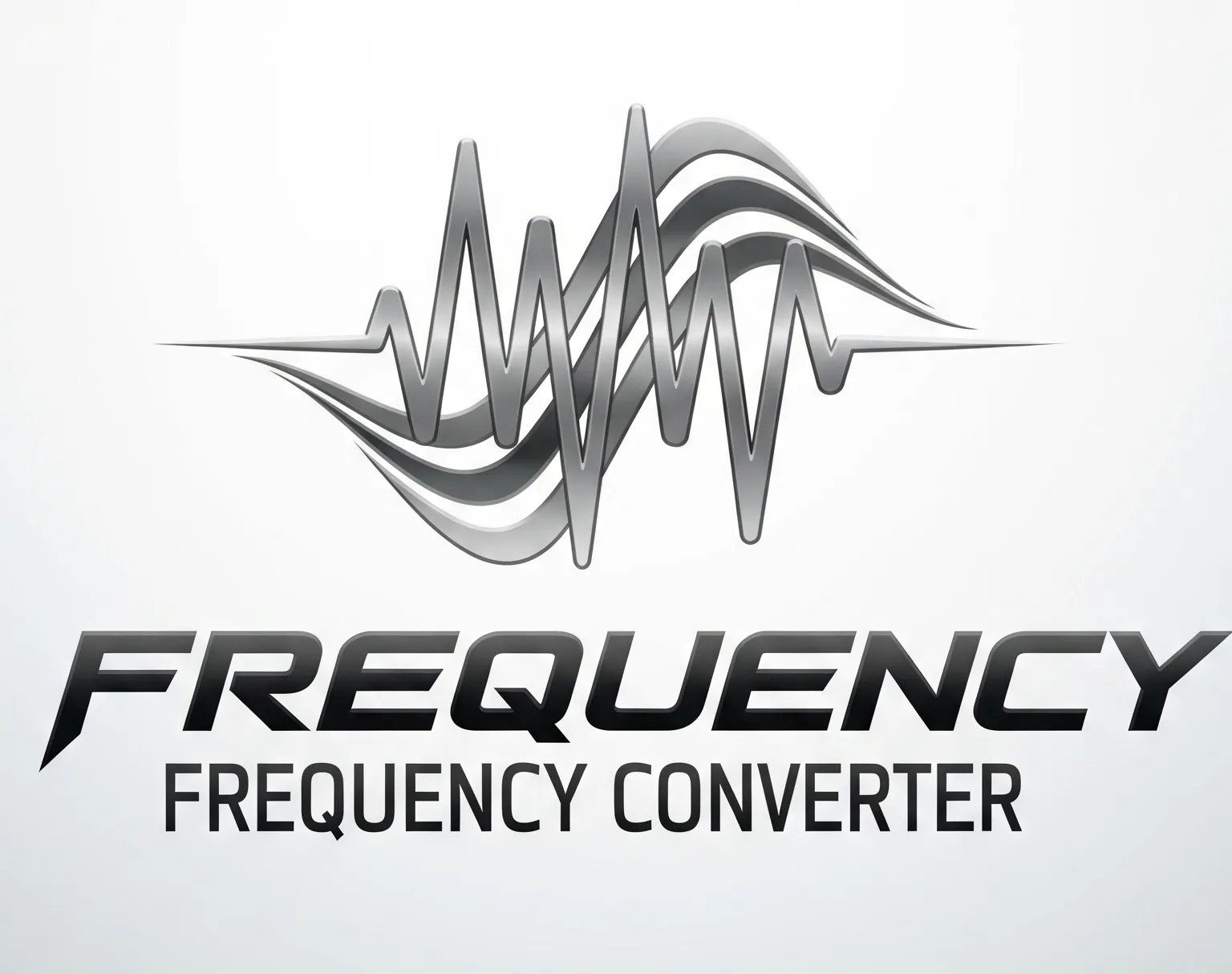What is a Frequency Converter?
Frequency is a fundamental concept in physics and engineering, representing the number of occurrences of a repeating event per unit of time. It's how often something vibrates, oscillates, or cycles. For example, the frequency of a sound wave determines its pitch, and the frequency of an electromagnetic wave determines its color or type (like radio waves vs. X-rays).
An online Frequency Converter is a specialized tool that allows you to translate frequency measurements between various units. This is incredibly useful across diverse fields, from setting up audio equipment and understanding network speeds to designing electrical circuits and analyzing mechanical rotations.

Explore Common Frequency Units
Our converter supports a comprehensive range of frequency units, ensuring you're covered for any task:
The SI unit of frequency, representing one cycle per second. Used for general frequency measurements.
One thousand (1,000) Hertz. Commonly used for audio frequencies and radio waves.
One million ($10^6$) Hertz. Used for FM radio frequencies, CPU clock speeds, and higher radio waves.
One billion ($10^9$) Hertz. Crucial for Wi-Fi frequencies, mobile phone networks, and processor speeds.
Measures rotational frequency. Common for engines, motors, and spinning machinery.
An angular frequency unit, often used in physics and engineering for rotational motion.
Other vital units include **Terahertz (THz)** for very high frequencies (e.g., optical communication) and **Revolutions Per Second (RPS)** for rotational motion, directly equivalent to Hertz.
Why Use Our Frequency Converter?
Our online tool provides accuracy, speed, and versatility for all your frequency conversion needs:
Broad Unit Support
Convert across all standard frequency units used in various industries and sciences.
Precision & Reliability
Utilizes exact conversion factors for highly accurate results, ensuring scientific and technical integrity.
Instant Conversion
Get immediate results as you type or select units, significantly speeding up your calculations.
Intuitive Interface
Simple dropdowns and clear input fields make the conversion process effortless for all users.
Free and Accessible
Access this powerful tool anytime, anywhere, on any device, without any cost or subscription.
Wide Range of Applications
Perfect for electrical engineering, acoustics, telecommunications, automotive, and academic studies.
How to Use Our Frequency Converter
Converting frequency measurements is quick and straightforward:
1. Enter Your Value
Input the numerical value of the frequency you want to convert into the designated box.
2. Select Your "From Unit"
Choose the original unit of your measurement from the "From Unit" dropdown menu (e.g., "MHz," "RPM").
3. Choose Your "To Unit"
Select the desired target unit for your conversion from the "To Unit" dropdown menu.
4. View Your Result
The converted frequency value will be instantly displayed in the "Result" area.
Key Frequency Conversion Formulas (Examples)
All frequency units can be related back to the **Hertz (Hz)**, the SI base unit:
- 1 Kilohertz (kHz) = $10^3 Hz$
- 1 Megahertz (MHz) = $10^6 Hz$
- 1 Gigahertz (GHz) = $10^9 Hz$
- 1 Terahertz (THz) = $10^{12} Hz$
- 1 Revolution Per Minute (RPM) = $1/60 Hz$
- 1 Revolution Per Second (RPS) = $1 Hz$
- 1 Degree Per Second (°/s) = $1/360 Hz$
- 1 Radian Per Second (rad/s) = $1/(2\pi) Hz$
Our converter uses the most precise, standard definitions for these conversions, ensuring accuracy across all applications.
Frequently Asked Questions (FAQ)
Hertz (Hz) is the SI unit of frequency, representing one cycle per second. It's used in many fields, including electrical engineering (AC current frequency like 50Hz/60Hz), audio (human hearing range 20 Hz to 20,000 Hz), and physics (wave frequencies).
RPM (Revolutions Per Minute) measures rotational frequency. Since 1 minute has 60 seconds, 1 RPM is equivalent to 1/60th of a revolution per second, or 1 RPM = 1/60 Hz. Conversely, 1 Hz = 60 RPM.
Both MHz and GHz are multiples of Hertz. MHz (Megahertz) means millions of Hertz ($10^6$ Hz), while GHz (Gigahertz) means billions of Hertz ($10^9$ Hz). Therefore, 1 GHz = 1,000 MHz. GHz is typically used for higher frequencies like CPU clock speeds and Wi-Fi bands.
Yes, our converter is designed to handle a wide range of values, from very small (e.g., millihertz) to very large (e.g., terahertz), using appropriate scientific notation for clear display when necessary.
Yes, our Frequency Converter is designed with a responsive layout, making it fully functional and easy to use on your smartphone, tablet, or desktop computer.
Keywords for Frequency Converter
Discover our versatile Frequency Converter using these popular search terms:
- frequency converter
- Hz to kHz converter
- MHz to GHz conversion
- RPM to Hz converter
- hertz converter online
- radio frequency conversion
- audio frequency units
- oscillating frequency converter
- unit of frequency calculator
- free frequency conversion tool
- TechAI Study frequency calculator